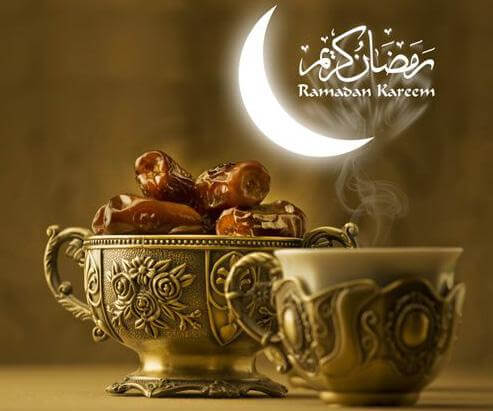The holy month of Ramadan is here and for 30 days Muslims around the world will be fasting from sunrise to sunset. The start of Ramadan depends on the sighting of the new moon, which can be seen on different days depending on where you are in the world. We thought it would be on the 9th July this year, but it actually started on the 10th. During the hours of fasting, Muslims abstain from eating food, drinking liquids, smoking and various other acts which as you can imagine is quite a challenge. While some may grimace at the thought of such “suffering”, Muslims all over the world take pleasure in this act of worship which is considered one of the highest forms of devotion and solely for God.
There is a lot more to Ramadan than simply not eating and drinking. It’s an infinitely more spiritual time for Muslims and involves a lot of reflection, prayer and increase in good deeds. These deeds may come in the form of charitable giving or simple, but deeply rewarding acts such as speaking well of others and being much nicer to family, friends, colleagues, neighbours and complete strangers! The sense of solidarity amongst Muslims is rarely as strong as during Ramadan. The knowledge that millions of people around the world are participating in the same expression of worship, feeling the same pangs of hunger and thirst, all bound by a shared devotion to God is immensely powerful.

There can be other behavioural changes, such as with productivity, which some sources state can be reduced by as much as 35%. Understandable when you consider the lower energy levels. You may find your Muslim friends and colleagues rushing to tie up loose ends and get decisions made before Ramadan starts, in order to reduce disruptions to workflow.
On a slightly less positive note, you may find that some people “develop” shorter tempers and can flare up at the slightest provocation. This is usually blamed on nicotine and caffeine deprivation; particularly hazardous in driving situations or in supermarket queues! The best thing to do if caught up in one of these situations is to understand it for what it is, not take it personally and try to diffuse the situation.
Common courtesy says yes. Where possible it is considered polite not to eat, drink, smoke, use bad language or back bite others in front of Muslims who are fasting. In some Muslim countries, the eating, drinking and smoking element is enforced by law as in the UAE. Muslims living in secular societies tend to be more tolerate of people around them eating and drinking, however would be touched and grateful if colleagues and friends showed sensitivity towards them too.
As you can imagine, when the time comes to break the daily fast at sunset, it’s a joyous occasion and many Muslims will celebrate (daily!) with a feast fit for royalty! If you’re fortunate to be invited for an “iftar” meal, then definitely accept the offer. It’s a sign of respect to share in the generosity, not to mention the amazing array of cuisines you’ll get to try. Within various Muslim cultures there are some foods which are only prepared during special occasions like Ramadan so you may not get another chance.
Common greetings you can use for your Muslim friends and colleagues include:
- Ramadan Kareem – Generous Ramadan
- Ramadan Mubarak – Blessed Ramadan
- Kul ‘am wa enta/enti bi-khair – May every year find you (he/she) in good health
If you have non-Muslim employees that would benefit from Cultural Awareness training covering issues such as Muslim festivals like Ramadan and other cultural nuances, Contact Us. At Creative Word we design bespoke courses facilitated by expert trainers.












